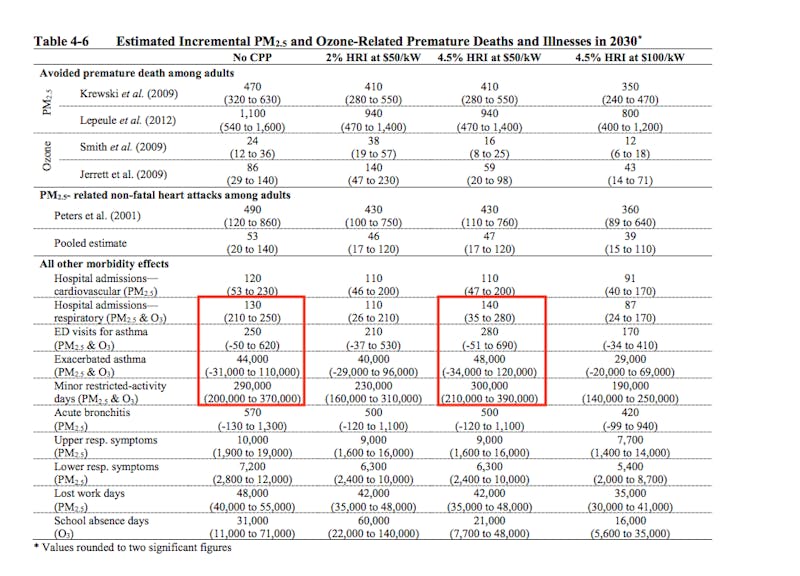President Donald Trump supports the coal industry and denies climate change, so it surprised few last year when he announced his intention to kill the Clean Power Plan, the Obama administration’s aggressive regulations to limit greenhouse gas emissions from coal-fired power plants.
The surprising part came months later. In December, the Environmental Protection Agency said it wouldn’t entirely undo Obama’s coal-emission regulations. The Clean Power Plan would be replaced with a new plan—a weaker one, to be sure, but with emissions limits nonetheless. But it turns out that Trump’s plan might be worse than no plan at all.
On Tuesday, the EPA unveiled its replacement regulation: The Affordable Clean Energy (ACE) Rule. Unlike the Clean Power Plan, which set hard limits on carbon emissions from the coal industry (and has yet to be implemented due to court challenges), Trump’s rule would allow individual states to create their own emissions-reduction goals and plans. By the EPA’s own analysis, replacing Obama’s plan with Trump’s would result in as many as 1,400 additional premature deaths annually by the year 2030, as well as up to 120,000 new cases of exacerbated asthma.
But what if Trump simply repealed the Clean Power Plan, and didn’t replace it? The EPA’s proposal tells us. In the table below, it’s the first column: “No CPP.” The other three columns show the estimated annual health impacts of replacing the CPP with the ACE Rule, using three different scenarios—the middle one being the most likely.

In several cases, the estimated “morbidity effects” in the “No CPP” column are better than those in the column featuring the most likely scenario under the ACE Rule. In other words, by the year 2030, the EPA estimates that its own rule could cause more annual hospital admissions for respiratory problems, more emergency room visits for asthma, more exacerbated asthma cases, and more “minor-restricted activity days” than from having no rule at all.
Analysts believe this is because of the EPA’s proposed changes to the New Source Review (NSR) program, which dictates how coal companies must upgrade their plants. Currently, the program “requires many coal facilities to install modern pollution control technology when they do major upgrades,” said Lyndsey Alexander, director of the American Lung Association’s clean air program. The pollution control technology is expensive, thus discouraging many coal companies from upgrading their facilities in other ways. Instead of upgrading, many coal plants have chosen to close.
Trump’s rule, however, would change the NSR program in such a way that would allow old, high-emitting coal plants to make upgrades without installing pollution control equipment. And that means “new investment in existing coal plants, extending their useful lives and increasing carbon emissions,” according to E&E News. In other words, Trump’s rule encourages old coal plants may to stay open for longer than they would have even with no climate rule at all—thus increasing emissions of particulate matter, sulfur dioxide, nitrogen ozone, ozone, and of course, carbon dioxide. (UCLA’s Meredith Hankins has an excellent, thorough explanation of the NSR program.)
For some Americans—perhaps many who attended Trump’s rally in West Virginia on Tuesday night—this potential for increased pollution may be worth it to save the coal industry. Trump certainly has promised that it will be. “We’re putting our great coal miners back to work,” he said at the rally. But as The New York Times reported on Wednesday, “the reality on the ground for the nation’s coal industry remains bleak. Even the Trump administration’s own numbers suggest that its latest proposal won’t reverse the sharp decline of coal power, which has been crushed by competition from cheaper natural gas and renewable energy over the past decade.”
This is perhaps the most tragic part of Trump’s new climate rule. After all, he never promised it would be better than the Clean Power Plan at protecting human health; his EPA openly admitted it would cause more deaths, more asthma attacks, more missed days from work and school. But he did promise coal country that the ACE Rule would save their industry, knowing full well that in the long run, nothing can.
